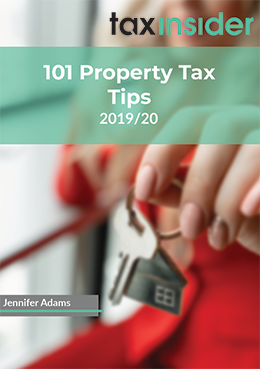The following is a tip taken directly from our best-selling guide 101 Property Tax Tips.
UK-resident landlords are generally taxed on rental profits made wherever the properties are situated in the world. Non-UK resident landlords of UK properties are taxed on UK rental income only (see Chapter 5).
A record of the rental income, expenses incurred, and capital items purchased must be kept. Separate sets of records are needed if the properties are let as ‘furnished holiday lets’ because these properties are taxed under different tax rules. Properties owned by the same persons form a single rental business as do non-UK-owned properties and, as such, separate records are required.
Keep:
- invoices, expense and capital items, receipts, rental statements, mortgage statements;
- past years’ income and expenditure accounts and Tax Returns submitted;
- bank statements;
- details of purchase of property – date of acquisition, purchase price including associated costs;
- details of subsequent improvement costs; and
- if the property was previously the landlord’s main residence, details of periods when the landlord lived in the property and of periods let – to ensure principal private residence and letting reliefs are correctly claimed on sale.
NOTE: In the Tribunal case of Ridpath (Ridpath v HMRC (2013)) it was accepted that a total of £40,000 had likely been incurred on property improvements. However, the claim was disallowed because it was impossible to define precisely how much had actually been spent as there was no proof of the expenditure.
HMRC have an index of the record-keeping requirements for a business available on the GOV.UK website at www.gov.uk/keeping- your-pay-tax-records/rental-income.
A penalty of up to £3,000 can be imposed by HMRC for failure to maintain adequate records for self-assessment purposes.
Record Keeping
-
Landlords Property Manager
-
Landlord Vision
Get the full scoop from the book here:




